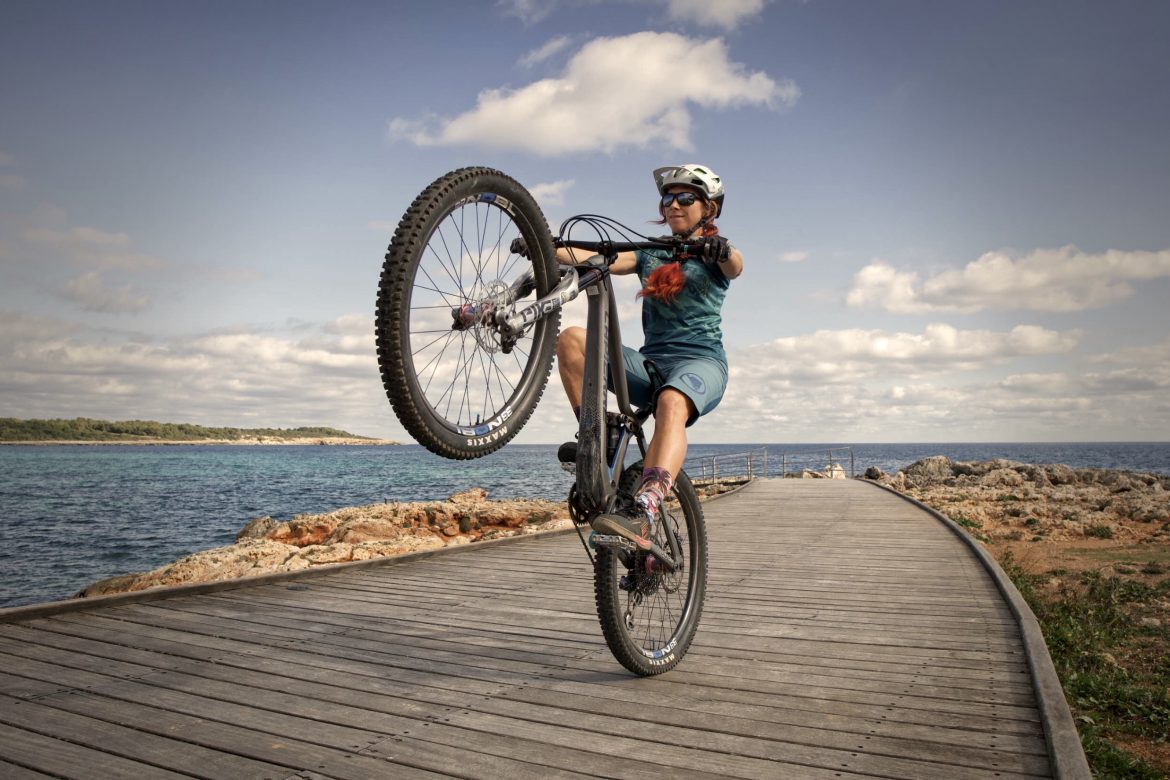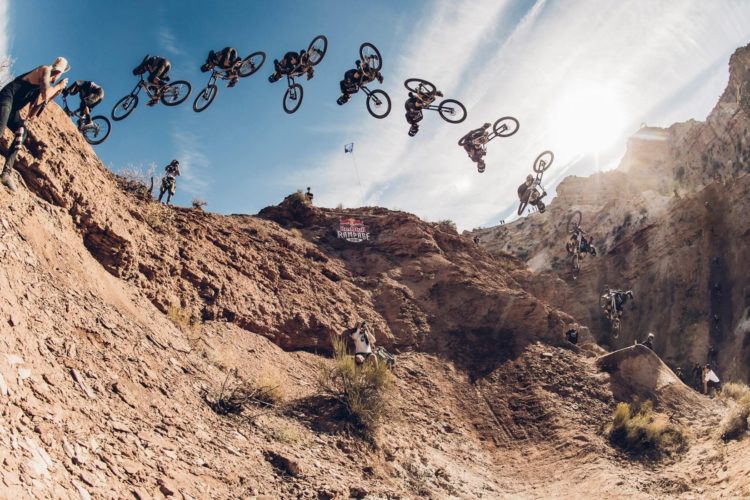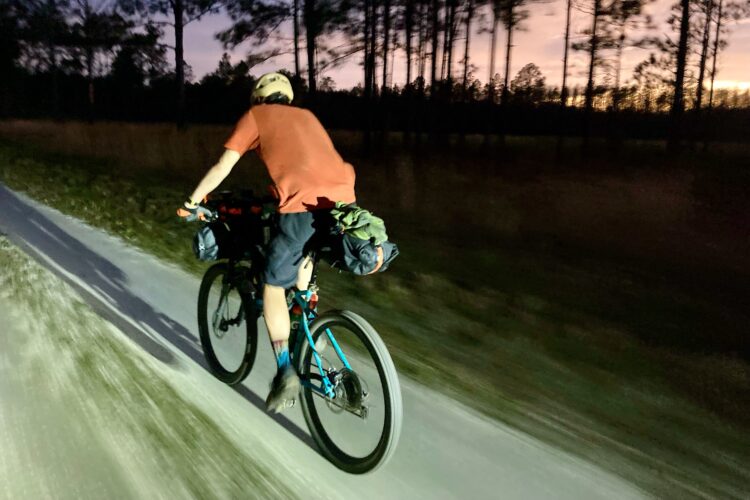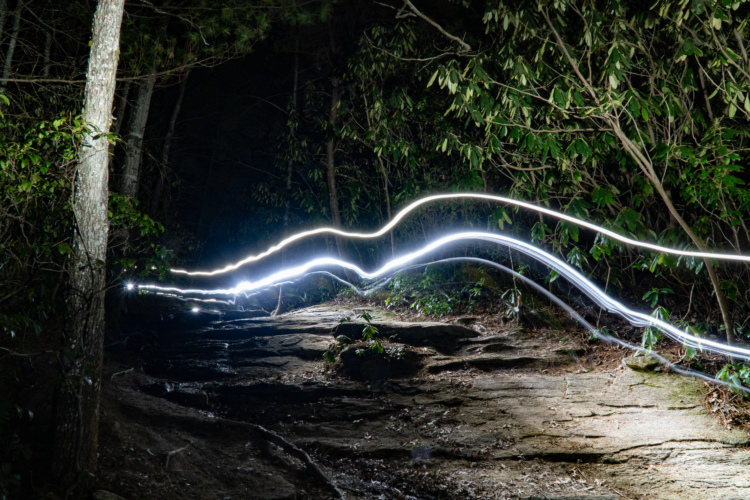
With a vast and growing number of MTB skills coaches around the globe, folks have to specialize and add unique skills to stand out. German skills coach, Roxy, stands out from the crowd for her teaching abilities and focus on the why of different skills training. She is known for giving her clients clear context around why they need to practice or hone a specific skill, instead of following the usual “just trust me” approach. She says that “my goal is always to coach my clients so they can train themselves, and they don’t really need me along the way.”
Roxy was born on the northern Turkish side of Cyprus in the split-nation capital of Nicosia. Her influences were clear early on, with a surf instructor mother and a tennis instructor father. She moved to Germany in 1998 to attend university while pursuing her love of dance. Some injuries left her looking for a new sport, and she had always enjoyed playing in the dirt so mountain biking quickly piqued her interest.
Roxy knew from the beginning that trails should lead to her career path and began the search for skills coaches who could help her hone the craft. In 2009 she found a skills instructor who was willing to train her as an apprentice, but he said that she needed to gain more experience riding. A bike station in Mallorca then offered her a job as a guide trainee – which was the perfect opportunity to gain experience. She packed up and set off for the Mediterranean island, willing to work for free if that’s what it took. Two seasons later she started her company, Roxybike, which has been growing strong since 2011.

When we asked her what skills folks need to learn or relearn most often she said that basic positioning is something that even the best riders can refine. Balancing weight between the tires, and weighting them differently for specific maneuvers is often overlooked once folks reach a certain level, and she says that even the highest level athletes see improvements when sharpening balance and weight fundamentals. Though she also teaches the jump, drop, and cornering techniques we all feel a need to improve, she says that a solid and confident position is paramount for all of them.
Regarding professional athletes and other coaches, in particular, Roxy says that they often come to her with a lot of fear around a specific skill, and they don’t know why. Even for the folks who get paid to ride, it starts with the fundamentals of body position and proper braking. “When I’m coaching other coaches, they think ‘well yeah, my body position is fine.’ But often there are three to four points where they can optimize their body positioning. Because the bike is the light mass, and the body is the heavy mass, so everything the body does resonates with the bike. If you’re just 2mm off in your body position, your front or rear tire will have less grip. Especially when it comes to timing and cornering, when you’re really on the limit of what you can ride and you’re kind of trying to defy gravity and physics, those 2mm will matter a lot. That’s why when I work with advanced athletes, we work on perfecting the fundamentals a lot.”
To touch on a specific skill, we asked Roxy about the current emphasis on weighting the front wheel, and how things have changed as frame reach numbers have grown larger. She said that it’s a common misconception among riders that we need to ride with a lot of weight on our hands in order to achieve front tire traction. “Actually you can achieve traction through micro-adjustments in the feet and legs. Of course, there are techniques in racing where you can work with active pressure on your hands, but it’s a very advanced technique. This is something where I work with athletes to feel the difference. With pro riders, once we work on finding more balance over their feet and putting less active pressure in their hands they notice that they have much more strength. If you’re putting active pressure on your hands you’re actually working against physics. You’re compensating for errors by using more strength. Of course, it works, but if you’re racing for a long time you want to be economic about your strength. If you work with physics and use less strength, you’re going to make better [race] times.”
Roxy went on to address lengthening gravity bikes specifically. We’ve heard and experienced the challenges around weighting the front tire once the bike gets stretched to a certain point. “Although longer bikes have many race-specific advantages, like more stability, they also have disadvantages for most riders — because they promote riding with too much weight in your hands. Maybe it’s one of those self-feeding loops. People start to promote more weight in the hands, then bikes are engineered to fit this trend and then people ride with even more weight… Which was first?”
Roxy also works with clients to overcome fears that are holding their riding back. She says that oftentimes when we are struggling with a skill there is a psychological element to that challenge that we can overcome on the way to truly knowing the skill. She sees a large number of riders who are hitting features or lines they’re afraid of simply because they feel that’s what it takes to be a cool mountain biker. Helping folks get past that mindset, to truly learn the skills they need to ride that line or feature is where her psychological training comes into play. She can help clients learn to meditate and find some inner focus or use hypnosis which she says allows riders a similar clarity of focus with external challenges or questions.
As so many of us do, Roxy had a fairly nasty crash in her first week of riding that bred fear in her around certain trail features. To ease that fear she started looking at why she crashed, and which skills would have prevented it. So, from an early point in her coaching career she started integrating the psycho and somatic elements of skills and body intuition. “I like combining all of it and seeing if it’s a skill issue or a mental block. There are many very easy and super effective ways to work on mental issues, and I have an online course for that.”
One example of working a psychological block that Roxy mentioned is when clients say that they want to lose a mental block around riding steep sections of trail. When she asks them what skills they need for proper body position and braking the answer is often something like “I don’t know, I just go for it and I’m scared.” With the fight or flight reaction that comes up in those moments things can become quite dangerous, so Roxy works with clients to connect the fear to the needed skills and overcome both with some focus and the confidence of well-practiced skills.
According to Roxy one of the very effective techniques for overcoming psychological blocks to skills progression is to “put down the bike and walk where you want to ride. Visualize yourself riding it. You can start with the third-person perspective, as if you’re seeing a movie of yourself riding it. Really see the line from the outside perspective, then jump in and ride it from the first-person perspective, including as many of your senses as possible. The better you can visualize from the first-person perspective, the better your memory can eliminate the unknowns. Then your brain says ‘okay, there is no danger.’ Then usually the fear will start to reduce.”
A third element of Roxy’s skills coaching experience includes flexibility and overall mobility. She says flexibility affects all aspects of riding, and starts with manuals and front-wheel lifts as an example. “Flexibility is very underrated. Your brain has one main function, and that’s to keep you safe. As soon as your body is feeling there could be a threat it won’t allow you to perform specific things. For example a manual, there are a lot of motions involved where you need to use the full range of motion of your whole body with the bike, and your body will not allow you to perform it if you have flexibility issues. So maintaining flexibility is really important to keep your balance on the bike and also to be nimble on the bike in order to perform advanced skills.”
Roxy uses a form of flexibility work called gravity yoga with her clients that she says is evidence-based and targeted at helping clients feel better on the bike. Some important elements of the yoga practice are to perform stretches for longer periods of time, allowing the body to fully relax into the stretch. In order to fully let go and relax into the stretch, she says that we need to stimulate our parasympathetic nervous system, which will allow us to access our full range of motion and eventually extend it. One of the ways she has clients tap into their parasympathetic nervous system is through a simple process called “four by eight” breathing. Simply breathe in through your nose for four seconds and exhale through your mouth for a count of eight. Roxy says, “as soon as you relax your nervous system, your body lets go of the fear, freeze, or flight response, which we’re in most of the time nowadays. That’s when you can access the range of motion in your muscles, and also regain control of your body and your thoughts. I recommend spending time on breathing exercises daily”

The pandemic has given Roxy and her co-coach Berni time to complete a robust online training platform that riders of all levels can learn from, and there are a number of interactive elements to help folks understand the nuances of their skills training.
Over the past ten years Roxy has worked with countless professional and amateur athletes alike on all sorts of mountain biking skills. She has amassed certifications in every sort of mountain bike skills coaching imaginable, from weight-position fundamentals to freeride leaps. She also holds several certifications in psychological training and hypnosis that allow her to help athletes through difficult mental blocks on the trail or race course. Oh, and she is certified to teach other instructors how to teach. With bike skills and their requisite flexibility tied into mental focus practices, Roxy refers clients to other trusted professionals when they need help with bike fit, nutrition, suspension setup, strength, or other factors. She says it’s best not to focus on too many things, as she wants to be really great at what she does.
For her online courses, Roxy shares videos with riders to see what their position looks like and lets them know how they can improve it. Roxy says that this video share method has always worked well, but the pandemic gave her the time to dial it in so that it works well for everyone.
Roxy teaches MTB skills in person and online, and there is a large library of skills videos on her YouTube channel. Mallorca is well known across Europe as a training paradise for road cyclists, and Roxy says that the trails are also worth a visit. Like much of Europe, the tracks are not overly signed or mapped, so you will want to ride with a guide for maximum fun. If you get a request in early enough Roxy may have an opening during your vacation for some skills training and guiding. Her clients largely come by word of mouth, and the calendar fills up through the island’s warm winters, so the online platform allows a far larger group of riders to benefit from her unique teaching style.










0 Comments